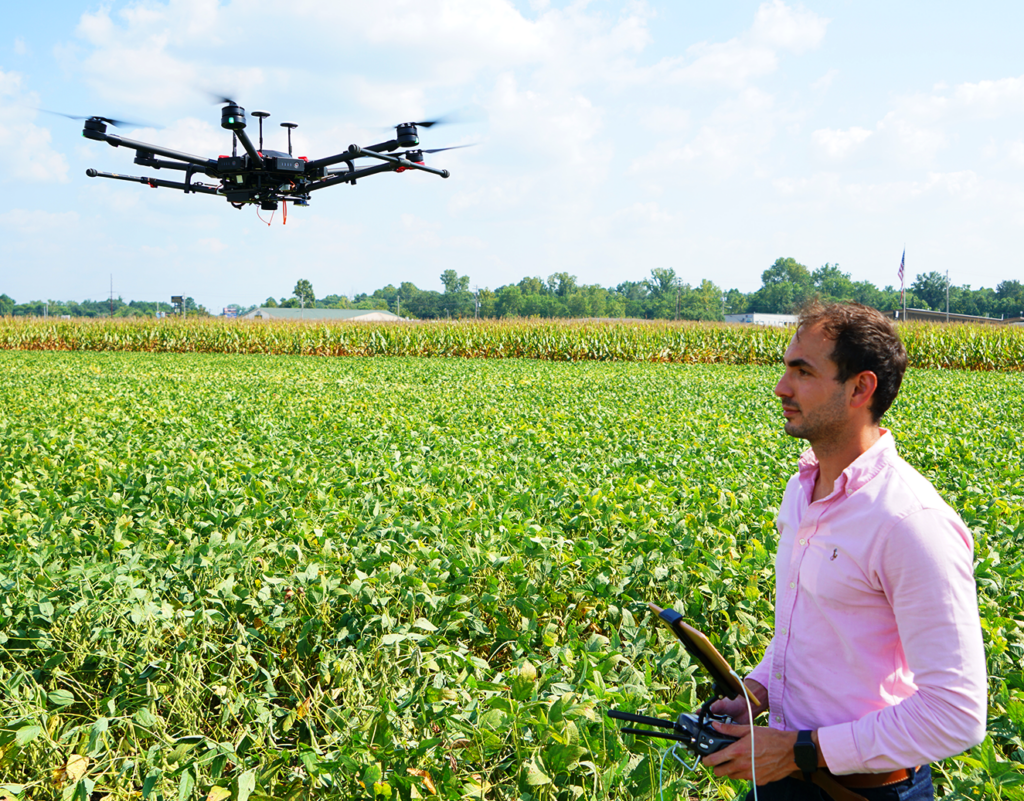Admissions to the Graduate School
All Herbert College of Agriculture doctoral candidates must apply through UT Knoxville’s Graduate School.
Requirements
- Bachelor’s degree from an accredited college or university with a 2.7 out of 4.0 GPA, or 3.0 GPA during the senior year of undergraduate study.
- Submit scores from the Graduate Management Admissions Test (GMAT) or Graduate Record Examination (GRE) standardized testing. Please check with your desired program to see which standardized testing scores are required.
- Submit scores from the Test of English as a Foreign Language (TOEFL) or the International English Language Testing System (IELTS).

Doctoral Degree Options
The animal science doctoral degree areas of research emphasis are animal physiology (e.g., ruminant and nonruminant nutrition, reproduction, stress, and obesity), health and well-being (e.g., immunology, microbiology, pre-harvest food safety and behavior), and genomics. Programs emphasize experiential learning with animal species, including beef and dairy cattle, poultry, swine, small ruminants, and animal models for human disease. See the department graduate program website for a listing of graduate research faculty and their specific research focus areas.
The entomology, plant pathology and nematology PhD program is evidence of exceptional scholarly attainment and demonstrated capacity in original investigation. Requirements for the degree include courses, examinations, and a period of resident study, as well as arrangements that guarantee sustained, systematic study and superior competency in the chosen concentration. The program of study as listed by the student on the Admission to Candidacy form must be approved by the doctoral committee and the director of graduate studies.
Concentrations:
A food science PhD program is the highest degree awarded in food science. Students entering the PhD program typically have already earned a master’s degree in food science or a closely related field. Students admitted to the PhD program without an MS degree must demonstrate promise to complete a doctoral dissertation by the third semester before continuing further doctoral studies, which will be determined by the graduate admissions committee based on progresses such as submitting manuscripts to referred journals, presenting papers at scientific meetings, or independently developing and proving research hypotheses. Students not meeting the expectations are advised to switch to the MS program. Commodity interests (meats, dairy, fruits, vegetables, bakery products) can be emphasized in any of the areas by careful selection of courses and the research topic. Minors are available in cognate fields. For detailed information, contact the department head or director of graduate studies.
Concentrations:
- Food Chemistry
- Food Microbiology
- Food Processing
- Sensory Science
The natural resources – forestry, wildlife and fisheries doctoral program emphasizes interdisciplinary research approaches toward the understanding and management of natural resources in a broad context. Areas of study include forest, wildlife, and fisheries biology, ecosystem function and structure, natural resources economics and policy, human dimensions of natural resource management, wood sciences, and multidisciplinary natural resources management. Students are not required to declare a concentration.
Concentrations:
- Bio-based Products and Wood Science and Technology
- Natural Resource Economics
- Wildlife Health
Students interested in pursuing doctoral studies in the area of natural resource economics may do so with a concentration in natural resource economics under the natural resources PhD major located administratively within the School of Natural Resources, formerly known as the Department of Forestry, Wildlife and Fisheries (see Department of Forestry, Wildlife and Fisheries catalog entry for detailed information). The student’s doctoral committee will assist the student in developing a program of graduate coursework that will meet the requirements for the natural resource economics concentration under the natural resources PhD major while drawing heavily from the Department of Agricultural and Resource Economics and the Department of Economics.
A doctorate with a major in plant, soil and environmental science – environmental and soil sciences concentration is offered under a multi-departmental doctoral program. Faculty from two departments participate – the Department of Plant Sciences and the soils faculty in the Department of Biosystems Engineering and Soil Science. Other concentrations within the plant, soil, and environmental sciences doctoral program include crop sciences, horticulture, plant breeding, plant molecular genetics, and weed science. Focus areas in the environmental and soil sciences concentration include soil and water chemistry; nutrient management; pedology, genesis and classification; environmental climatology; soil biology and biochemistry; and soil physical processes. See the Department of Biosystems Engineering and Soil Science graduate education website for additional information or contact a faculty member in the area of interest.
The Doctor of Philosophy in Plant, Soil and Environmental Science – Plant Sciences Concentration with concentrations in crop sciences, horticulture, plant breeding, plant molecular genetics, and weed science is offered under a multi-departmental doctoral program. Faculty from two departments participate – the Department of Plant Sciences and the soils faculty in the Department of Biosystems Engineering and Soil Science. Another concentration within the plant, soil and environmental sciences major is environmental and soil sciences. Students must select a formal concentration as a focus of study. We recognize that modern research approaches in plant sciences often overlap. Students may specialize in one or more approaches, including plant biotechnology, molecular biology, breeding, genetics, physiology, ecology, culture and management. Research approaches may be applied to model plant systems, public horticulture, turfgrass, weeds, or woody ornamental plants, as well as fruit, vegetable, cereal, grain, or fiber crops.
Concentrations:
- Crop Sciences
- Horticulture
- Plant Breeding
- Plant Molecular Genetics
- Weed Science
